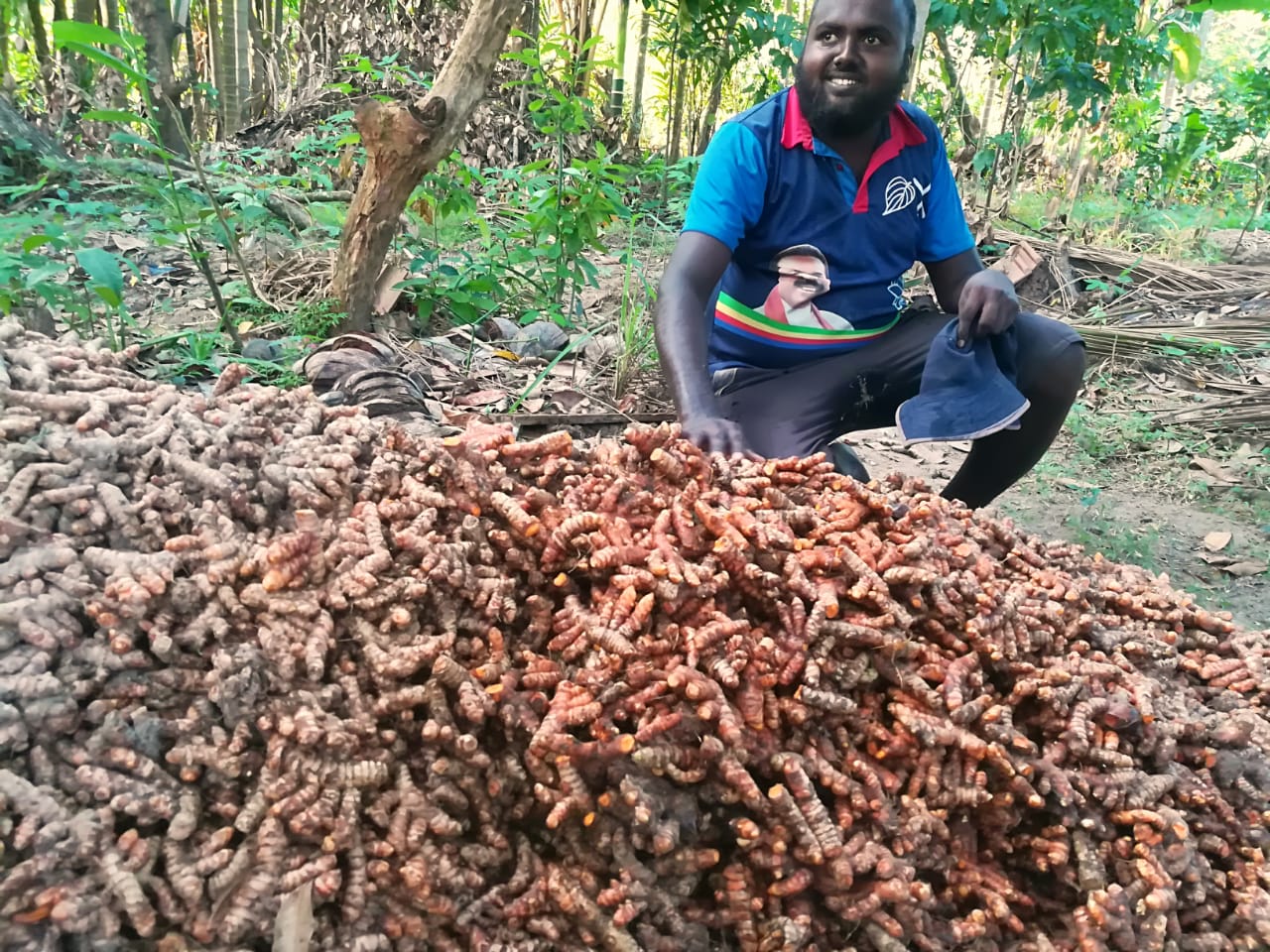While the COVID-19 pandemic has devastated livelihoods across the world, there have also been pockets of hope, where policy, institutional support and individual grit have come together to find new opportunities. When Sri Lanka imposed a lockdown to contain the spread of COVID-19 in March, the agriculture sector found itself at a crossroads. Part of the measures adopted by the Government of Sri Lanka included an import ban on many food staples, such as maize, rice, sugar, soya, turmeric and flour-based products. At the same time, the Ministry of Agriculture took decisive steps to address the demand for these products – always high – by promoting local production of these goods.
Farmers rose to the challenge with alacrity. In Gonagala, a remote village in Sri Lanka’s Eastern Province for example, farmers seized the chance offered by the skyrocketing local demand for turmeric – one of the goods on the banned list.
Gonagala’s farmers primarily grow rice. However, in 2019, when the Smallholder Agribusiness Partnerships Programme (SAPP) -- a collaboration between the Government of Sri Lanka and IFAD that aims to expand livelihood and business opportunities in the agriculture sector for 57,500 smallholder households -- began working with farmers in the village, it was to strengthen their turmeric business.
It turned out that Gonagala’s farmers, who also cultivated turmeric and other field crops using traditional methods, were sitting on a “gold” mine of sorts. They grow a high-quality variety of turmeric, with a greater concentration of curcumin (the chemical compound that gives turmeric both its distinctive golden colour and makes it incredibly healthy). They only use traditional manure as fertiliser, forgoing chemical alternatives.
Yet, these farmers were not seeing the returns from what should have been a highly remunerative product. This was because resellers were pocketing any increased earnings, rather than passing on the gains. If the farmers could orient their production for better market access, this could change. Value addition – by processing the raw turmeric into powder before sale – could be another way for turmeric farmers to improve their profit margins. Though the village had an old facility to process raw turmeric, it was no longer operational and required significant investment.
The first crop was nearing harvest and SAPP was working on strategies to help farmers get their turmeric into high-end sale points when COVID-19 hit and Sri Lanka went into lockdown. Though agricultural activities were exempt, there were disruptions in the logistical movement of food – and a lot of confusion. Many farmers were concerned that they wouldn’t be able to sell their crop.
Because of their increased incomes, many farmers have been able to continue to pay off bank loans and mortgages, even during a pandemic. Some have had enough left over to buy motorbikes! Given that the Government of Sri Lanka continues to promote domestic production, they might even be able to start exporting soon. These results have been so persuasive that more farmers are participating in SAPP to grow quality turmeric, and other villages in the district are also exploring turmeric cultivation.


